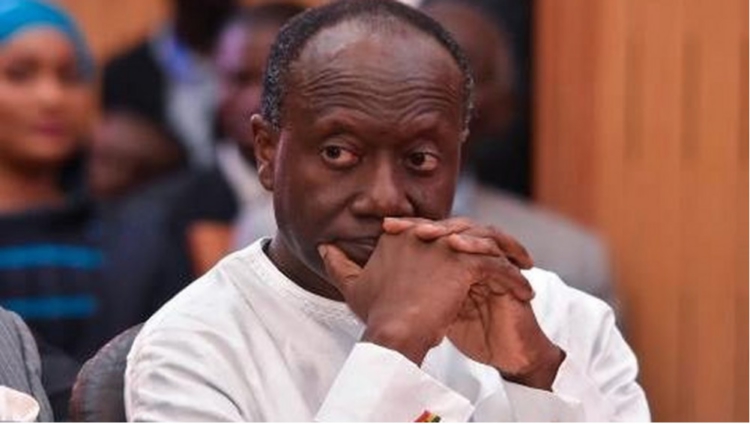Ghana was ranked 26th, out of 36 lower middle-income countries in tax collections in 2019, with the positioning almost remaining same in 2020, findings from a survey conducted by the Institute for Fiscal Studies and the Ministry of Finance has revealed.
However, out of a sample of 35 countries from sub-Saharan Africa, Ghana was ranked 17th in terms of tax-to-Gross Domestic Product ratio.
This position is making it difficult for government to increase its financing for capital projects such as hospitals, schools and roads.
At 13% in 2019, Ghana’s tax-to-Gross Domestic Product ratio remains far below the government’s target of 20% by 2023. Though this ratio is 5 percentage points higher than in the year 2000, it has remained at the same level since 2017.
“Between 2000 and 2019, Ghana’s ratio of tax collections to GDP increased by 5 percentage points, from a base of just 8% at the turn of the millennium”, the report mentioned.
Total tax revenue collected in 2019 amounted to GH¢45.6 billion, implying a tax-to-GDP ratio of 13%. However, this is far lower than the typical tax mobilized in richer countries.
“Like most low- and middle-income countries (LMICs), this is less than the typical tax take in richer countries: for instance, in 2018, the OECD average was 33.9% (OECD, 2020). Nonetheless, Ghana’s relative tax collection remains lower than many comparator countries in the region, and countries with similar income levels. In this context, and in line with the government’s objective to improve domestic revenue mobilisation under the Ghana CARES ‘Obaatanpa’ programme, there is a medium-term aim to increase the tax-to-GDP ratio to 20% by 2023”, the research noted.
Revenue collection is a challenge to authorities
The findings explained that “revenue collection has become a particularly pressing issue in Ghana in recent years given longstanding fiscal challenges. The overall government budget balance for 2019 stood at –4.8% of GDP, while gross central government debt increased by almost 5 percentage points between 2018 and 2019 to hit 62% of GDP. Like many countries around the world, in 2020 the COVID-19 pandemic brought substantial economic disruption to Ghana, leading to declining revenues and increased expenditures. As a result, the overall fiscal balance reached –11.7% of GDP, with the combined cost of debt repayments and the compensation of employees exceeding overall tax revenue”.
The report also said there are variation in the tax type in relation to the revenue mobilization, according to analysis of tax rates and revenues across countries.
While recent growth in corporate income tax revenues means they exceed those in other countries using similar tax rates, personal income tax and general sales tax revenues are lower than expected. Since Ghana transited to middle-income status, there has been a significant reduction in grant from donors.
For instance, in 2019, grants constituted just 2% of total government resources, which was less than GH¢1 billion, compared with more than 6% of total government revenues (GH¢ 2.0 billion) in 2015.
Way forward
Going forward, the research suggested that the tax system has a crucial role to play in terms of domestic revenue mobilisation, with the government aiming to reach a tax-to-GDP ratio of 20% by 2023.
In doing so, it called for the tax system to be designed to raise revenue in an efficient, equitable and sustainable manner.
Latest Stories
-
WAFU B U-17 Girls’ Cup: Black Maidens beat Nigeria on penalties to win inaugral tournament
33 minutes -
Real Madrid beat Sevilla to keep pressure on leaders Atletico
2 hours -
Liverpool put six past Spurs to go four points clear
2 hours -
Manchester United lose 3-0 at home to Bournemouth yet again
2 hours -
CHAN 2024Q: ‘It’s still an open game’ – Didi on Ghana’s draw with Nigeria
2 hours -
CHAN 2024Q: Ghana’s Black Galaxies held by Nigeria in first-leg tie
3 hours -
Dr Nduom hopeful defunct GN bank will be restored under Mahama administration
3 hours -
Bridget Bonnie celebrates NDC Victory, champions hope for women and youth
3 hours -
Shamima Muslim urges youth to lead Ghana’s renewal at 18Plus4NDC anniversary
4 hours -
Akufo-Addo condemns post-election violence, blames NDC
5 hours -
DAMC, Free Food Company, to distribute 10,000 packs of food to street kids
6 hours -
Kwame Boafo Akuffo: Court ruling on re-collation flawed
6 hours -
Samuel Yaw Adusei: The strategist behind NDC’s electoral security in Ashanti region
6 hours -
I’m confident posterity will judge my performance well – Akufo-Addo
6 hours -
Syria’s minorities seek security as country charts new future
7 hours

